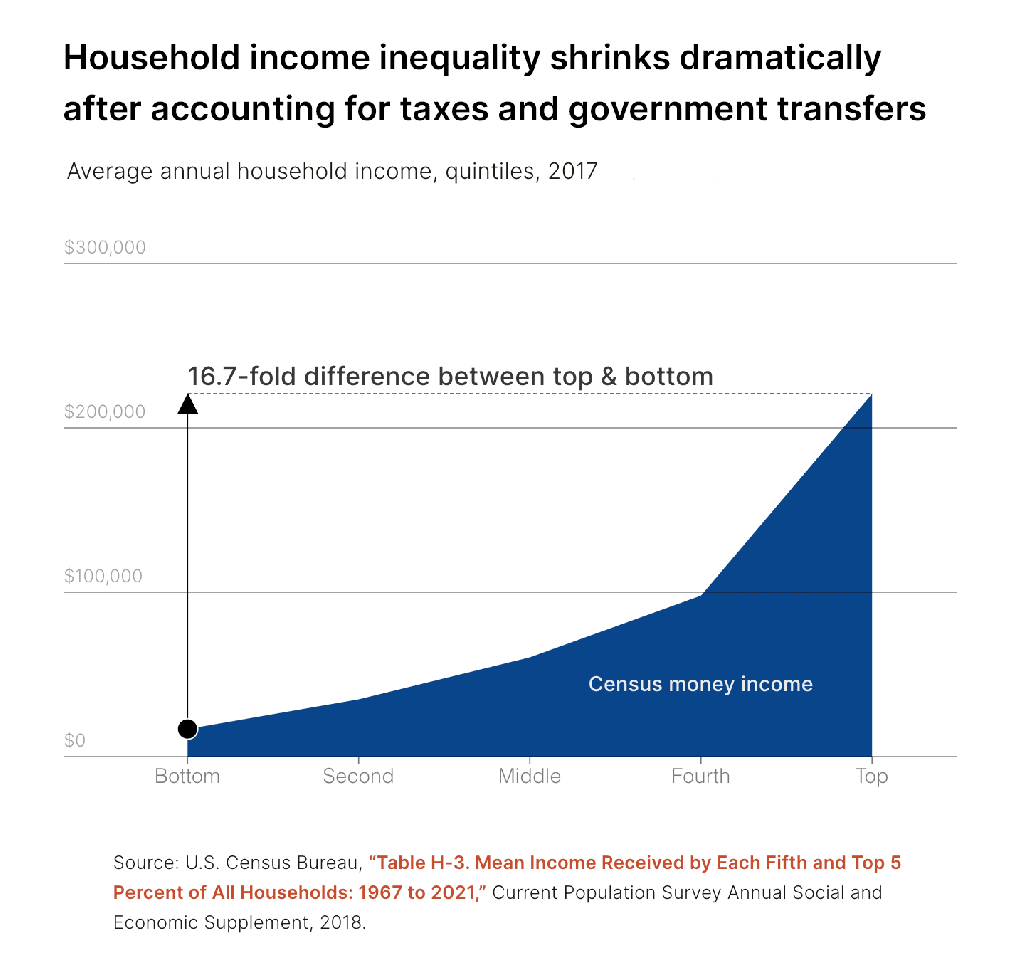Dear Capitolisters,
There’s been a good bit of writing lately on the “new right”—a catchall term for “national conservatives” and other right-leaning populists who openly reject the Reaganite, limited-government conservatism of my youth for an activist state that would achieve cultural and economic policy aims with ruthless, partisan efficiency. They’ve held conferences, made speeches, penned widely shared (for better or worse) op-eds, and started several of their own publications. A couple of their avatars might even be elected to the Senate next month. It’s quite the current thing, especially among the youths.
As we’ve discussed, I unsurprisingly have ideological and policy-related concerns about this new right and its pursuit of government power to effectuate (supposedly) conservative ends. Whether it’s adherents’ views on social policy, Big Tech, trade and immigration, industrial policy, or simply their open embrace of Leviathan (and the once-dreaded “administrative state”), there’s plenty for this right-leaning libertarian to contest—and contest it I surely have.
What I haven’t really addressed, however, is how some of the practical challenges that a new right Leviathan would almost certainly face are seemingly ignored by its champions. A recent, somewhat-ridiculous event involving yours truly and one of Capitolism’s favorite subjects provides an opportunity to do that, and in so doing show why the new right’s plan for cultural and economic dominance in America faces serious real-world hurdles.
‘A Textbook Case of Regulatory Capture’
In case you missed it, our own Haley Byrd Wilt broke some interesting news last week: Newly published government emails show that somebody in or closely connected with a federal maritime advisory committee suggested at a 2020 meeting—in writing, no less!—that my Cato Institute colleagues and I, along with our fellow libertarian travelers at the Mercatus Center, be charged with treason for criticizing the protectionist Jones Act. This salacious detail won most of the headlines (and all the internet memes), but it and other revelations provide bigger and more important lessons about U.S. law and the sprawling bureaucracy that implements it.
But first, a little backstory.
For the last several months, two of my Cato colleagues—Patrick Eddington and Colin Grabow—have used the Freedom of Information Act (FOIA) process to gather Jones Act-related emails to or from officials with the U.S. Maritime Administration (MARAD), an 800-person agency buried within the Transportation Department and responsible for the nation’s maritime transportation system. After receiving some initial documents, Grabow and Eddington realized that many of the exemptions MARAD cited to justify withholding various documents seemed bogus. So, they asked again, and MARAD demurred again— relenting only after Eddington threatened legal action. The whole process took ages—not to mention dogged determination, hours of manpower, and a highly specialized knowledge of U.S. law and agency practice. It was no small feat.
As Haley wrote last week, the final tranche of documents we received contained recommendations for a March 2020 meeting of the International Shipping Subcommittee of the Marine Transportation System National Advisory Committee (MTSNAC)—the “federal advisory committee within MARAD that advises the Transportation Department on issues related to the marine transportation system”—one of which was the now-infamous line that “all past and present members of the Cato and Mercatus Institutes” be charged with treason.
Well, then.
As Grabow and I explained on a Cato podcast and in a separate blog post last week, it’s impossible for us to determine the seriousness of this suggestion. Some Jones Act fanboys say this is all an obvious joke or troll, but that obviousness is undermined by the line being buried among substantive policy recommendations in a non-public document, by MARAD’s repeated disclosure dodges (in probable violation of FOIA), and by at least one other prominent supporter’s suggestion that, actually, we are kinda treasonous. (It’s all quite the intricate joke!)
Anyway, whether this “treason” stuff was or wasn’t a goof really misses the point.
Indeed, as we explained last week, the more troubling issue here is the ample indications throughout this and other FOIA’d documents that a federal government agency charged with overseeing waterborne transportation in the United States—a multibillion-dollar business essential to American commerce and national security—has been wholly captured by the U.S. companies and unions providing those services and profiting handsomely from the protectionist, but failing, status quo. Indeed, buried elsewhere in the 41 pages of emails we released last week were ones showing, for example, Department of Transportation officials strategizing with U.S. maritime industry members and other Jones Act supporters about how to rebut Jones Act criticism (from Cato and others), cheering one U.S. shipping investor’s responses, and even speculating about critics’ LinkedIn connections (wut?).
But the situation goes beyond just schoolgirl gossip and crony backslapping to major policy issues too. This week, for example, Grabow opened a separate tranche of FOIA’s documents to detail MARAD’s 2019 efforts—again with an assist from a lobbyist for the “American Maritime Partnership (AMP)”—to block a possible Jones Act waiver for LNG shipments to New England (which is once again facing an energy-challenged winter, thanks in part to the Jones Act). In particular—
- One MARAD official used his government connections to provide unsolicited information to Rick Perry’s Department of Energy purportedly showing how the waiver would have “devastating impact” on U.S. maritime industry. (Never mind that, as Grabow notes, nobody in the entire U.S. maritime industry provides bulk LNG service—thus, the need for a waiver.)
- That same MARAD guy reached out to Massachusetts Gov. Charlie Baker’s director of federal-state relations and the state’s undersecretary of energy to pre-empt a possible waiver request, even though—as National Review’s Dominic Pino notes—a lot of President Trump’s inner circle, including Trump himself, was “open to a waiver.” (Trump’s former chief economist Casey Mulligan has written elsewhere that “Trump hates the Jones Act.”)
- At one point, a MARAD deputy administrator literally sought that AMP lobbyist’s input on pro-Jones Act talking points on LNG that were apparently being prepared for Secretary of Transportation Elaine Chao (who, as we discussed last year, was named an “American Maritime Hero” by the AMP a few weeks after Trump backed off plans to issue a long-term waiver for LNG shipments).
Thus, MARAD’s surreptitious efforts were (unfortunately) successful. As Pino rightly notes, this depressing affair, and others like it in the FOIA’d documents, are right out of a political economy textbook:
“Regulatory capture” is the term that describes when an administrative agency works for the benefit of the industry it is supposed to regulate. Rarely is there such a clear case of regulatory capture as in U.S. water transportation.
Indeed.
It’s the System, Stupid
We’ve had some fun with this situation and will certainly use it to push for Jones Act reform, but the kerfuffle provides a timely reason to be skeptical of the new right’s plans to use Big Government to achieve populist ends. As already noted, recent speeches and columns by various “new righters” call for an expansive, muscular federal government (and vigorous administrative state) to achieve their cultural and economic policy objectives—ones that, as George Mason’s Tyler Cowen succinctly explained last week, revolve around a serious skepticism of and aversion to corrupt “elites” in big corporations (especially tech, finance, and media), science, the military, and academia.
But can such an approach actually work? TreasonGate (ha) gives us ample reason to doubt.
As Cowen noted, a core classical liberal critique of big government is that it not only attracts elites interested in self-service (rather than national service), but also can corrupt those elites who didn’t enter government with such cynical aims. Thus, while some level of well-intentioned elite power is inevitable (and also inevitably messy), a government of enumerated powers (acting in only a few core areas like national defense) and checks and balances is essential to constraining that power and preserving the benefits of our relatively free society. In short, classical liberals are often skeptical of elite power and decision-making, and they use limited government to contain the damage.
The new right shares and amplifies this elite skepticism but eschews limited government and instead embraces state power to achieve its “anti-elitist” objectives. As Cowen notes, however, this represents a core weakness in the new right plan:
I also do not see how the New Right stance avoids the risks from an extremely corrupt and self-seeking power elite. Let’s say the New Right description of the rottenness of elites were true—would we really solve that problem by electing more New Right-oriented individuals to government? Under a New Right worldview, there is all the more reason to be cynical about New Right leaders, no matter which ideological side they start on. If elites are so corrupt right now, the [forces] corrupting elites are likely to be truly fundamental.
The administrative state’s corrupting, fundamental forces are on full display in our MARAD/FOIA case, which is indeed right out of the textbooks. A federal agency tasked with supporting the U.S. transportation system and Merchant Marine has evolved over decades to become little more than a lobbying firm for a law (and industry) that actually undermines the agency’s statutory purpose. Its “advisory committee” is stacked with industry insiders dedicated to preserving that harmful status quo, and its employees routinely strategize with lobbyists and other industry players—“elites” by anyone’s definition—to deliver rents, not effectuate great policy, regardless of the harms that such actions (or, in the case of LNG, inactions) cause.
The officials involved were both political appointees and career bureaucrats (so, no, this isn’t just Trump’s fault), and they leveraged obvious informational asymmetries (i.e., bureaucrats and industry players almost always know more than senior political appointees and the public) and institutional connections/reputation to convince disconnected decision-makers (Chao, Perry, Trump, Baker, etc.) to effectuate their plan, despite the principals’ general support for a waiver and underlying distaste for the Jones Act. Those MARAD officials easily influenced other U.S. government officials with industry talking points that were obviously bogus to an expert like Grabow but readily accepted as fact by others who lack such knowledge (and skepticism). And they did all of this with not only little consideration for alternative viewpoints, but outright hostility thereto (“treason”!).
They also acted with little accountability—another administrative state hallmark. From the top down, it’s almost certainly the case that Trump and his closest advisers were unaware of the machinations of a tiny advisory committee inside a small agency inside the massive Department of Transportation, no less the isolated actions of a few of that small agency’s 800(!) employees. From the bottom up, meanwhile, MARAD’s conversations were hidden from view and clearly delivered with the expectation that they always would be. They were only revealed now after years of FOIA efforts (by Cato and other groups) and the threat of formal litigation by a major U.S. think tank. And, as Haley’s article notes, the entirety of MARAD’s response to this now-public mess has thus far been a heartfelt “no comment.”
Put it all together, and you have an institutional situation that’s a breeding ground for elite capture and distorted policy, regardless of the policy’s original intent or even the views of top government decision-makers.
Finally, it’s worth noting that putting treason “jokes” and other nonsense notes in official government documents is not exactly a testament to the ruthless administrative competence that would be needed to implement a radical, new right overhaul of the administrative state. Indeed, it all brings to mind that classic scene in The Wire about “takin’ notes on a criminal f*%$ing conspiracy.” That’s like Conspiracy Rule No. 1!
Anyway, as readers of Capitolism know all too well, the issues of regulatory capture, informational asymmetry, and bureaucratic unaccountability (and incompetence) are not isolated to MARAD and the Jones Act. Libertarians, classical liberals, and most pre-Trump conservatives have long acknowledged these practical impediments to implementing a wide variety of policy—impediments that are inherent in a massive bureaucracy whose responsibilities have grown to touch on almost every aspect of our lives. As mentioned, that’s a big reason why limited government of enumerated powers is so central to the classical liberal thesis: No matter how well-intentioned a policy is, elites are fallible, and the systemic, corrupting influences of a big, unaccountable state all but ensure that policy results won’t match their intentions. The law instead becomes a weapon not for the Forgotten Man or Silent Majority (or whatever) but for the people with access and intel (or the money to buy them) and a strong incentive to seek the rents that the state is offering. Thus, as my Cato colleague David Boaz likes to say, Smokey the Bear’s rules for fire safety should also apply to government: Keep it small, keep it in a confined area, and keep an eye on it.
But it’s not just libertarians and classical liberals who acknowledge these systemic problems. Wikipedia, for example, lists 12 different U.S. examples on its “regulatory capture” page. Left-leaning ProPublica writes constantly about the issue, as do many left-of-center folks today interested in breaking through incumbent capture to implement “supply-side progressivism.” In reality, anyone familiar with the current U.S. government or who’s practiced administrative law in this country for more than a week (including me) should readily acknowledge that, when you scratch a regulation, you very often find a self-interested “elite” underneath.
The New Right’s Fundamental Flaw
The difference, of course, is that the left is relatively comfortable with an expansive technocratic government controlled by elites. The new right supposedly isn’t. Yet, as Cowen notes, there isn’t any real plan for dealing with the systemic problems that inevitably arise from the big economic and cultural agenda with which the new right wants to task the American Leviathan. “Retire all government employees” is a neat slogan and all, but a big and powerful new right bureaucracy will require more than a few like-minded replacements. There are hundreds of federal government departments and agencies. There are 800 bureaucrats in MARAD alone. According to the Brookings Institution, there were 2.2 million people in the government in 2020, while its “true size” was five times that amount:
Surely, not all these positions have power or influence requiring a new right conductor, but, as the MARAD case shows, tens of thousands surely do—and they’ll all be susceptible to elite capture and corruption. How will the new right bring these bureaucrats to heel? Whom will it task to replace the ones that leave? How will it monitor the employees’ subsequent actions inside a still-massive American bureaucracy that continues to tempt self-interested, well-monied, highly informed, and highly motivated elites? And perhaps most importantly, what will happen when the new right loses a subsequent election?
Classical liberals have responses to these questions: limit state action to essential roles and accept some level of elite capture and bureaucratic incompetence in the relatively few (but necessary) government roles that remain. What’s the new right response? A governing philosophy dependent on mass bureaucratic purges, on tens of thousands of dedicated, incorruptible, “non-elite” shock-troops manning and monitoring every nook and cranny of the administrative state, and on permanent electoral victories is not a serious one. And without a solution to these basic, practical problems, the new right won’t deserve to be taken seriously either.
Charts of the Week

:







Please note that we at The Dispatch hold ourselves, our work, and our commenters to a higher standard than other places on the internet. We welcome comments that foster genuine debate or discussion—including comments critical of us or our work—but responses that include ad hominem attacks on fellow Dispatch members or are intended to stoke fear and anger may be moderated.
With your membership, you only have the ability to comment on The Morning Dispatch articles. Consider upgrading to join the conversation everywhere.